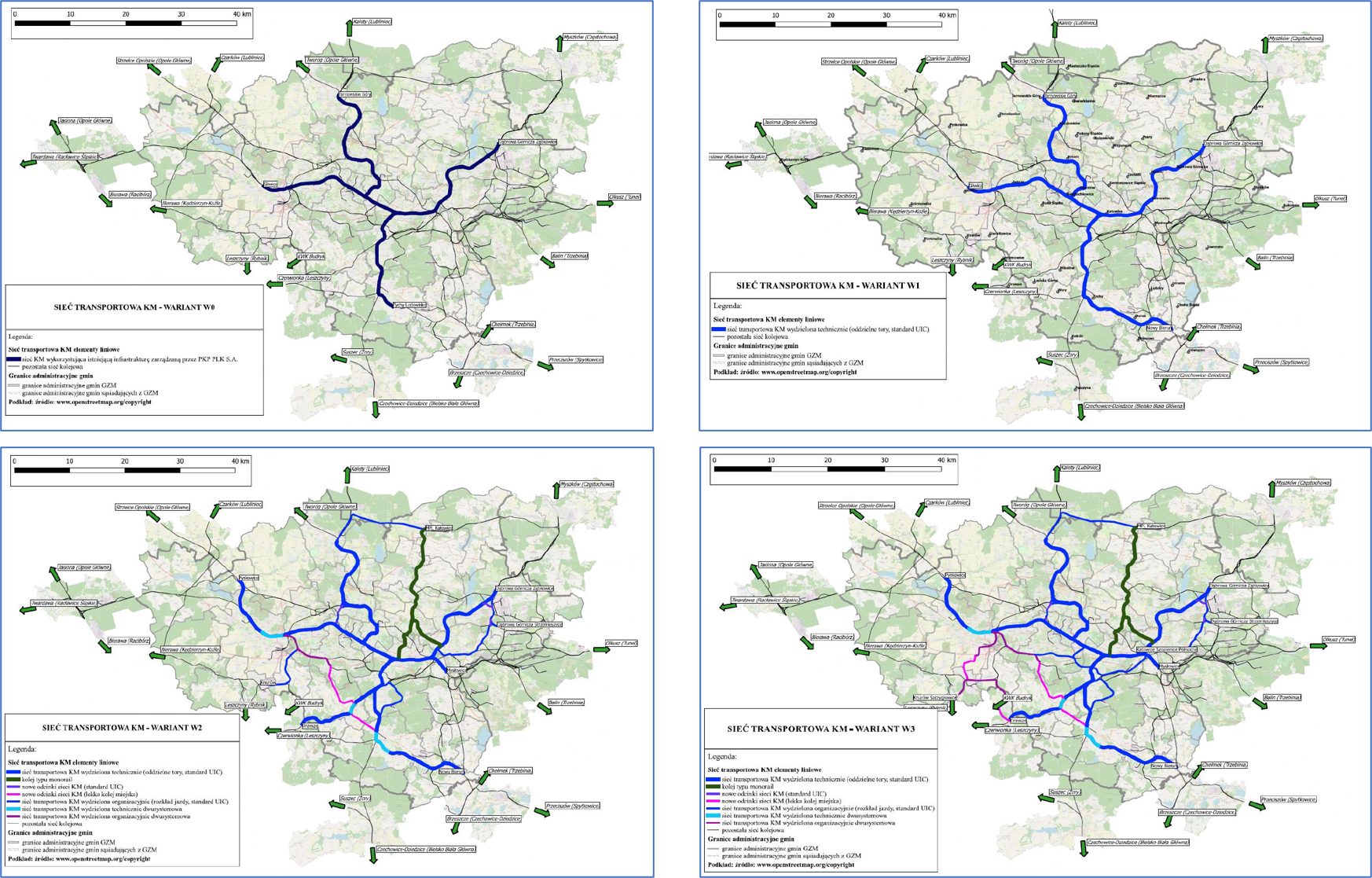Concept of the Metropolitan Railway for the Metropolis GZM
with the use of system engineering methods
The Concept of the Metropolitan Railway is an introduction and the basis for further work on the optimization of rail transport in the Metropolis GZM. As part of the study, four variants of railway development were developed - from basic to the most comprehansive. A specialized four-stage system engineering method (the so-called V-model) was used in the work.
The most important tasks of the authorities of the Metropolitan Union include shaping the service of the transport needs of residents in line with the directions of the long-term development of the Metropolis GZM. Measures aimed at sustainable mobility are of great importance here. Such solutions generate many benefits, such as the improvement of the accessibility of travel destinations, a positive impact on the economic and social activities of GZM residents and the impact on the travel behavior of the population, leading to greater readiness to abandon the use of a car in favor of public transport. Projects consistent with the principles of sustainable mobility ensure the improvement of the natural environment in the GZM area, the elimination or reduction of traffic congestion and the increase in the competitiveness of public collective transport through its attractive offer. The project of building the Metropolitan Railway system, preceded by the necessity to develop its concept, is this kind of activity.
The concept of the Metropolitan Railway presents a preliminary construction of an effective railway system in the GZM area, meeting the aspirations of the stakeholders. The Metropolitan Railway System consists of three main subsystems:
- structural subsystem, with such elements like: rail transport infrastructure, railway traffic control devices and rolling stock,
- functional subsystem, including such systems as: organization of railway traffic, telematics applications for passenger transport and maintenance, as well as technical and diagnostic service,
- organizational subsystem, with such components like: organization of transport, tariff and ticket system, integration of metropolitan transport, financing of transport.
In the process of developing variants of the Metropolitan Railway, specialized four-stage system engineering methods (the so-called V-model) were used, including defining assumptions, developing system requirements, building both a high-level design and a detailed design. The individual stages were considered twice, first during the system analysis (decomposition), and then during the system synthesis (integration). As part of the project, many analyzes were carried out, including analysis of the socio-economic, technical-organizational, economic, financial, institutional and legal environment as well as environmental impact assessment.
The concept of the Metropolitan Railway is an important study supporting activities aimed at restoring the importance of rail transport in the GZM area. This document was used in further design works (including the preparation of a feasibility study), leading to the construction of the Metropolitan Railway system and the launch of transports, constituting the backbone of public transport in the Metropolis.
TIME LIMIT FOR COMPLETION:
August 2018 - December 2018
The aim of the project was to develop the Concept of the Metropolitan Railway, covering both the area of municipalities participating in the Metropolitan Union and selected municipalities directly surrounding the Metropolitan Area of Upper Silesia. As part of the analyzes, system engineering methods based on the so-called V-model were used. The presented variants were in line with the system requirements formulated on the basis of the identified aspirations and requirements of the stakeholders. The study included, inter alia, technical and organizational, operational, economic, financial and legal analyzes of the recommended variant of the Concept of the Metropolitan Railway.
Link name: „Koncepcja_Kolei_Metropolitalnej”
Research areas:
- Sustainable development of transport and logistics systems
- Planning and integration of transport systems
- Public collective transport
- Logistics and transport infrastructure










